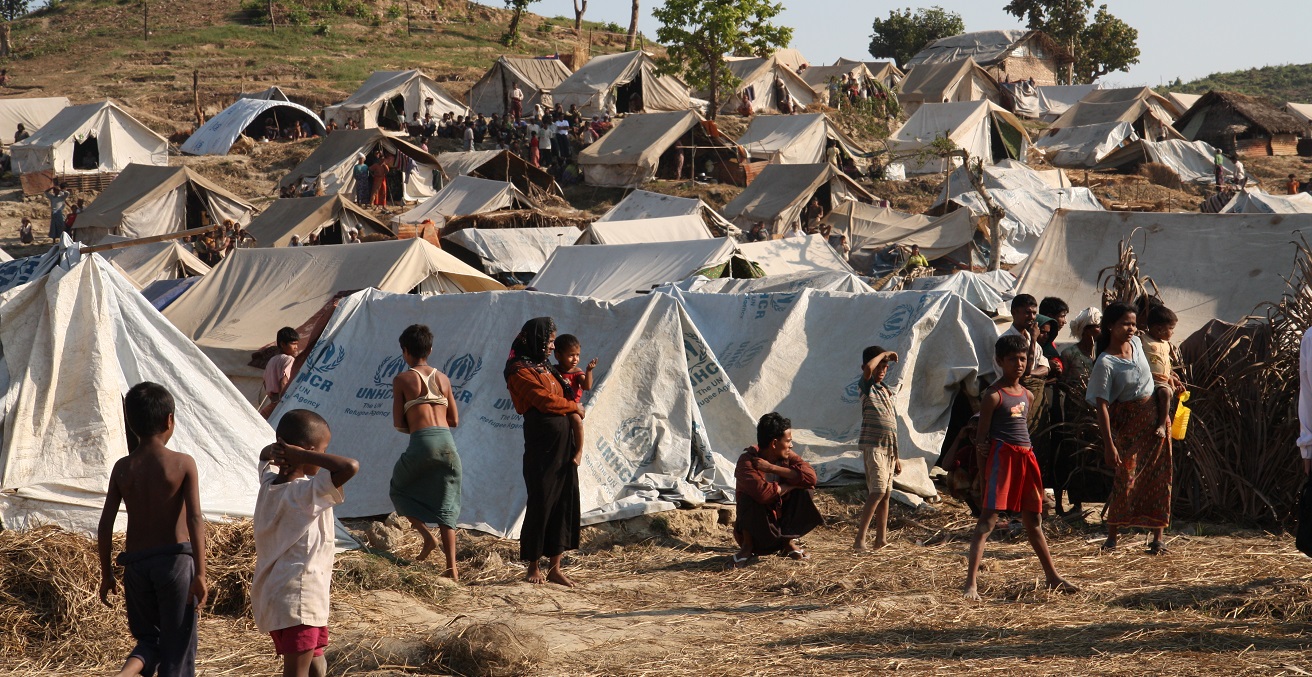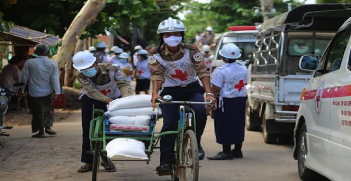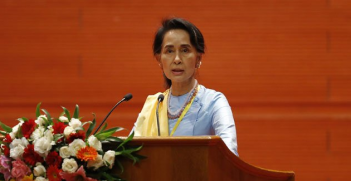The International Community's Response to the Rohingya Crisis

The Rohingya crisis in Myanmar continues to escalate and the international community has yet to decide on an effective response.
On 25 August 2017, Muslim militants of the Arakan Rohingya Salvation Army (ARSA) in Myanmar, armed mostly with swords, machetes and small arms, allegedly staged a coordinated attack on approximately 30 police posts and an army base in restless Rakhine State. The death toll from the attack has reportedly risen to 104, the vast majority militants.
Since these attacks, Aung San Suu Kyi’s administration has granted increased power to the Tatmadaw (the armed forces of Myanmar) in Rakhine. Subsequently, the Tatmadaw have launched clearance operations that have displaced more than 18,000 Rohingya, have instigated the widespread burning of civilian villages and have allegedly perpetrated a number of crimes against humanity.
These atrocities against the Muslim Rohingya are the latest in a long history of violence and suppression enacted by the Buddhist Burmese majority. The Rohingya are considered illegal immigrants by the Myanmar government, despite evidence that the Rohingya have inhabited Myanmar continuously for hundreds of years prior to colonial rule. Rohingya have been denied citizenship since the 1982 Burma Citizenship Law and are subject to severe limitations on their freedom of movement and religion.
The ARSA, previously known as the Faith Movement, arose in response to rampant anti-Muslim violence in 2012. There are no credible links between the ARSA and any known terrorist organisations, despite Myanmar’s assertion to the contrary. ARSA is seen by some analysts as a “paper tiger that… will only prove a justification… for more severe military operations”. With widespread reports of ethnic cleansing in response to the latest ARSA attack, these appear to be legitimate concerns.
The sudden outbreak of violence is a dramatic change to a conflict that has simmered in Rakhine State since last October. The ARSA staged coordinated attacks on three military posts on 9 October 2016, which were promptly followed by disproportionate reprisal operations from the Tatmadaw, displacing more than 75,000 civilians, killing hundreds and causing widespread food insecurity.
Myanmar’s security forces have been accused of killings, rape and torture against the Rohingya. The UN has been advocating for a fact-finding mission to investigate these allegations, which the Myanmar civilian government has emphatically resisted, whilst simultaneously denying journalists and a majority of aid groups access to Rakhine.
Domestic quandary
The government of Aung San Suu Kyi, a Nobel Laureate, has struggled with ethnic tensions in Rakhine state since coming to power in 2016. Aung San Suu Kyi and her ministers have vehemently denied any persecution of the Rohingya and, hoping to deflect further allegations levelled by the UN against the government, commissioned a Kofi Annan-led investigation earlier this year.
Even though the commission was explicitly told by the government not to investigate alleged human rights violations, the wide-ranging report urgently recommended addressing restrictions on Rohingya freedom of movement, religion and citizenship. Although Suu Kyi has promised to implement the commission’s recommendations, the likelihood of this occurring is doubtful as the Tatmadaw, which has consistently criticised the recommendations, still retains veto power over government decisions.
Although Suu Kyi has no real power to overrule military operations against the Rohingya, her silence and accusations against aid groups as being complicit in the violence are reprehensible. As a result, there have been numerous calls for Aung San Suu Kyi to return her Nobel Peace Prize but such demands are symbolic, ignore Myanmar’s domestic political reality and would do nothing for the Rohingya. Indeed, it is the international community who have the power to influence the Tatmadaw, although unsurprisingly the global response to the Rohingya crisis has been impotent and insufficient.
International response
India and China are key regional powers and both have acted cruelly towards the Rohingya at the behest of Myanmar. China has blocked attempts to meaningfully address Myanmar’s abusive treatment of the Rohingya at the United Nations Security Council, using its veto to create stronger diplomatic ties with the Burmese regime. India, meanwhile, which is deepening military engagement with Myanmar as a bulwark to Chinese influence, has announced it will deport 40,000 Rohingya who have fled to India for asylum.
Similarly, Bangladesh, which has long been a haven for persecuted Rohingya, housing 400,000, has recently been pushing Rohingya back into Myanmar. The actions of India and Bangladesh are in clear violation of international law. The principle of non-refoulement, widely considered to be part of customary international law, expressly prohibits states from returning a refugee to a territory where they will be subject to persecution. The international community should decisively condemn the actions of India and Bangladesh and exert pressure on these states to comply with their legal obligations.
Although not displaying the same callousness shown by Myanmar’s immediate neighbours, the international community’s response to the violence has been woefully inadequate. The UN, the United States and the Organisation of Islamic Cooperation have issued standard condemnations and Muslim-majority Indonesia has been the most active, sending their foreign minister for urgent talks with Myanmar.
However, condemnations alone are not enough. The international community must adopt a two-pronged approach to assisting the Rohingya. Firstly, punitive measures, such as sanctions should be taken against the government of Myanmar to demonstrate that the international community firmly denounces the actions of the Tatmadaw. Secondly, and most importantly, the international community must take immediate action to alleviate the suffering of the Rohingya people by providing humanitarian relief and proactively assisting the Rohingya in seeking asylum.
Aisha Ismail is a lawyer with an interest in refugee studies, international law and holds first-class honours in law and international relations.
Elliot Dolan-Evans is a previous AIIA intern, a medical doctor, law graduate, and researcher in international relations and feminist studies at Monash University.
This article is published under a Creative Commons Licence and may be republished with attribution.





